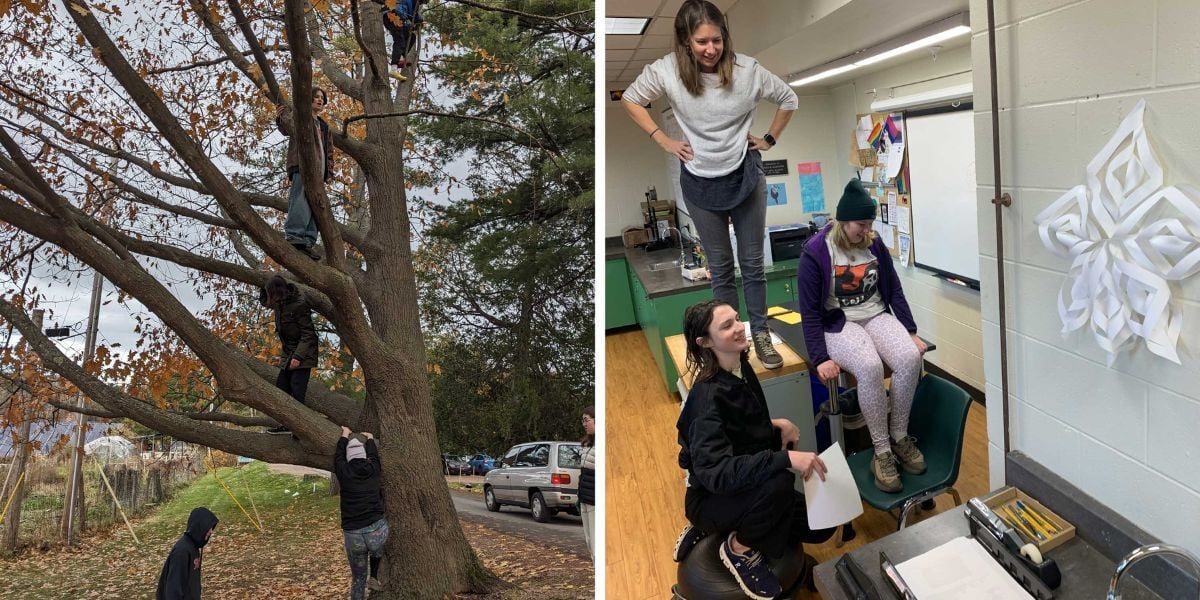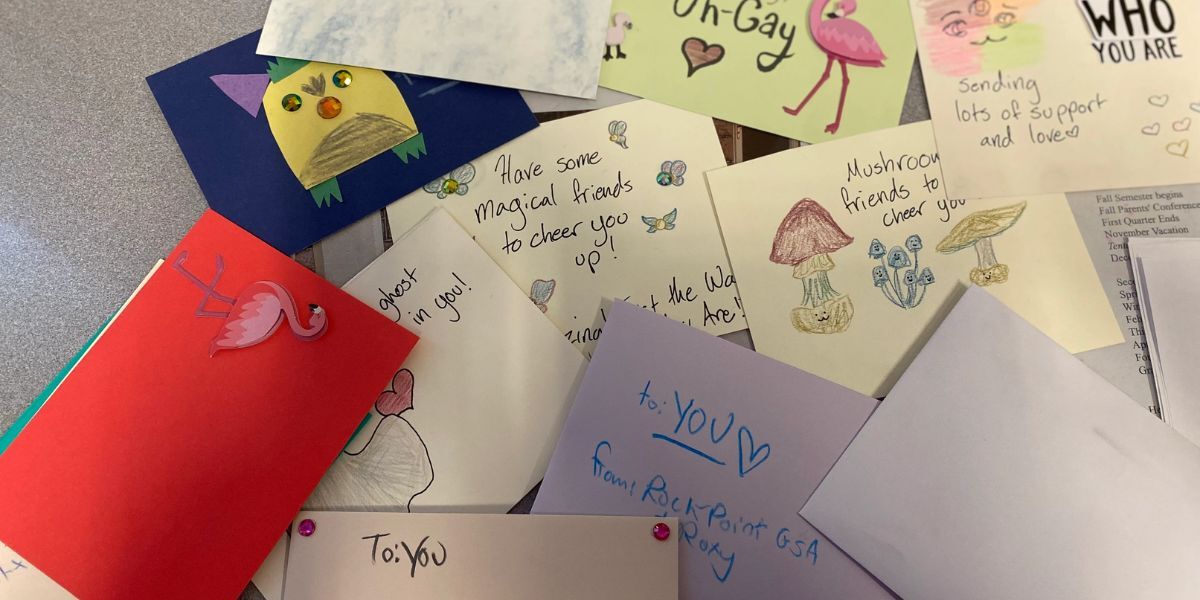Supporting Your Teen During School Breaks
As we are heading into our vacation, I am thinking about a student at Rock Point from many years ago who really struggled to get back into the school...


Post updated 11/14/2022
As we are heading into our vacation, I am thinking about a student at Rock Point from many years ago who really struggled to get back into the school schedule when she returned from vacation. It was impossible to get her downstairs for breakfast before her first class of the day. Jokingly, we made the first day back from vacation “Tara clause” - making breakfast optional that first Monday morning to help students ease back into school. To this day, some students still use the “Tara clause” on the first morning back from break!
As many of you have probably seen, teens struggle to readjust everything from their sleep schedule to their social life when transitioning back and forth from school to vacation. This can make school vacations a challenge, not only for them but for families as well. Over the years, we have found that families who prepare well for vacations (and summer too!) can minimize conflict with their teens and help make the transition back to school much easier.
Here are some tips we’ve collected from families, as well as from research!
The best thing you can do for your teen is to start having conversations about vacation at least a week or two in advance. If you are preparing for summer vacation, starting several months in advance is great! In your conversations, you can encourage your teen to make plans for structured activities he or she will enjoy. For some students this might mean taking an art class, going to the gym, or getting a babysitting job. If you are going on a trip, have your teen help plan the itinerary and pick a few places he or she wants to visit.
You can also ask your teen how much “downtime” they feel they need and what that might look like. Teens need unstructured time to decompress, just like the rest of us, and it is important to try to get them to be mindful of balancing rest and activity. Encourage them to find healthy ways to unwind like reading, drawing, listening to music, and exercising. If your teen really likes to use technology in their downtime, help them be mindful of how much screen time they have in a day (see the Unplug section below). When they are engaged in a solo activity, really give them the space to unwind and be alone.
It is also very important to set expectations early. Discuss curfews, chores, rules, and general expectations. Start by asking what your teen thinks is reasonable and try to compromise where you can. Using Dr. Ross Greene’s concept of “parenting in baskets,” can be helpful too. Pick a few behaviors you can ignore (put them in basket C), a few that are “learning opportunities” where you can have constructive conversations (basket B), and a few that have clear boundaries and consequences (basket A). By letting some things go, your teen can buy into the “rules” around behaviors that are not acceptable. It is also important that you set up clear consequences ahead of time, should your child struggle to meet the expectations.
The biggest challenge for many teens is their sleep schedule. This PBS News Hour story outlines why sleeping on weekends isn’t good for teens. The extreme shifts in schedule for many teens - staying up late and sleeping until noon - makes getting up for school on Monday much harder, making them feel like they have jet lag while trying to learn.
This can be even worse over vacations because teens have a whole week (or more) of sleeping in before returning to a school schedule, making the readjustment take longer. While Rock Point has worked to make our schedule more in tune with the natural sleep cycles of teens by starting classes at 9:30, we still find that students who are allowed to sleep til noon over breaks have a hard time adjusting.
What can you do? Here are some basic ideas:
As we mentioned above, it is great “digital hygiene” to keep TVs, computers, and smartphones out of the bedroom, but what about during the rest of the day? Especially if you are working, it is challenging to keep your teen from zoning out in front of a screen all day while they are home on break. Again, setting up clear expectations around screen time before vacation begins can be helpful.
The most powerful thing you can do is lead by example. When you are home together, try to put your own devices away and plan for some family activities. This could be anything from going for a bike ride to cooking a meal together but have your teen come up with a list of things they would like to do that don’t revolve around technology. Board games, crafts, getting a week-long pass to the gym, adult coloring books, and rock climbing are some things students at Rock Point have enjoyed doing.
If your teen is motivated by incentives, make it an incentive for the whole family to put their phones away! Perhaps you can set a goal to turn off phones for two hours a night. If everyone can keep to that goal you can come up with a family reward like a dinner out or going to a movie. Involving everyone will make it much more fun for the teenager and ultimately less confrontational.
Encouraging your teen to have healthy, face-to-face social interactions with peers over vacation can help reduce technology use as well. Remind them that it can be fun to hang out with their friends in person. It might mean giving your child a ride to the skate park to meet some friends or taking a group of teens to the local thrift store.
As we have seen repeatedly, our teens need structure to be successful. As much as possible, involve your child in planning for the vacation, and be sure to start talking about school and summer vacations ahead of time. We hope using the guidelines above can get you started on a fun, healthy, vacation with your teen.

As we are heading into our vacation, I am thinking about a student at Rock Point from many years ago who really struggled to get back into the school...

Every quarter, students choose from several electives, which meet three times a week to supplement the curriculum and provide a fun way to start...

“May your choices reflect your hopes, not your fears.” - Nelson Mandela